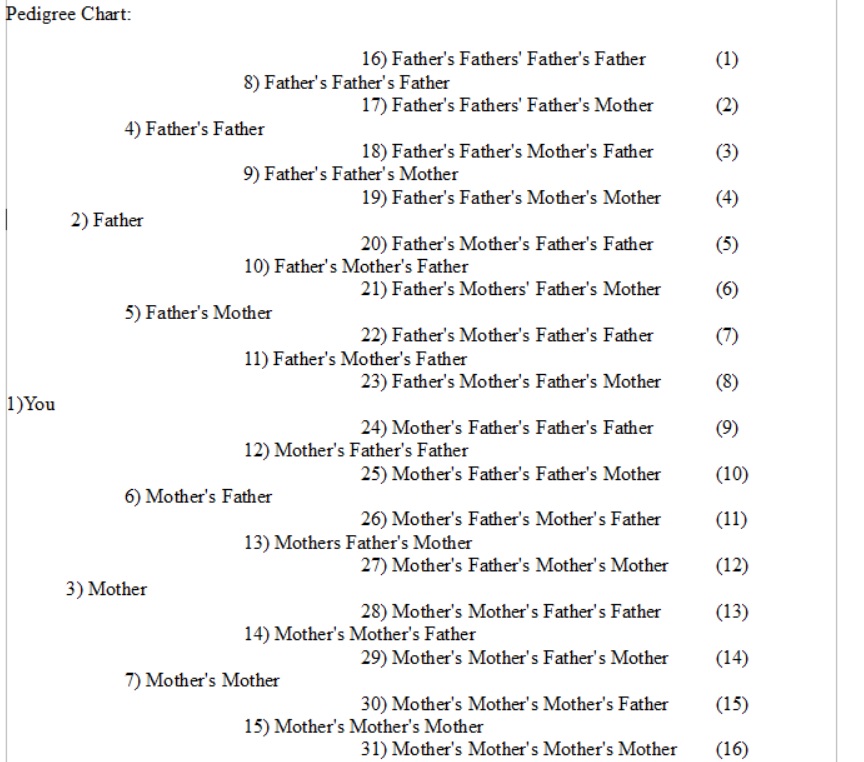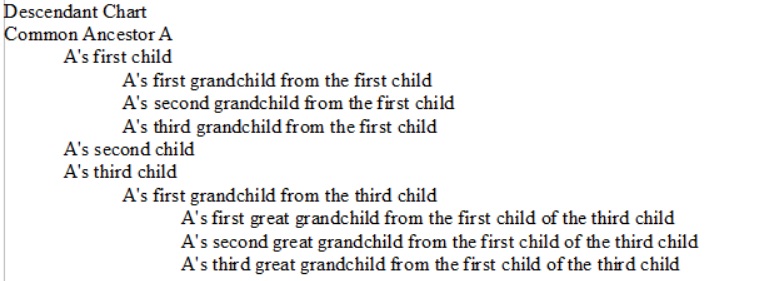Writing Personal Histories
By Dale E. Lee
2021.10.02
Summary:
- Personal Histories
- Organization
- Examples
- Suggestions
- Summary
Detail:
- Personal Histories
One of the most enjoyable parts of Family History is reading the personal histories of your own ancestors. These stories bring history to life, and they do so because they were part of you! The events your ancestors went through, the emotions they had, and the things they did, directly impacted where you were born and the circumstances of your life. Think of how important your own story could be to your descendants now and in the future!
As you read your ancestor’s accounts you may learn surprising things in your family. And you’ll gain a greater appreciation for who they were and what they went through. Things that were common place back then, are not today. One of the problems we have and which our ancestors also had is that we don’t think we have a lot to write about and that our lives are fairly boring. But that is simply due to the fact that we haven’t yet dug into the details of our lives. More I wrote about my life, the more I realized that there were actually things that would be interesting to them, even if the bulk of them can’t be written simply because not everyone understands how to program a computer, design a database, or display a web page.
As you prepare to write a Personal History, think about what you’d be interested in knowing about your own ancestors. You may find that many of the details you’d like to know about them have been left out. For example, if they came to America, what were the circumstances they faced in the old country that caused them to come? What issues did they face in getting to America? When did they come and on what ship? What did they go through on their journey? And what were the dates and places associated with those events? Knowing what you’d like to know about them, may help you understand what others would like to know about you in the future.
- Organization
As you search for things to write about, ask yourself the following questions. What would people want to know about the time I live in? (Remember that circumstances in the future may be far different than those today.) What are the important events of my life? What is the best way to present the information in an organized manner? And how can I find a balance between formalization and personalization?
The organization you choose for your own Personal History is “personal”, but the following can be helpful in helping you build it. You will find that there needs to be a balance between bulleted detail and pure text narration. Narrations are excellent to show your personality, but many times loose details that would be nice to know. On the other hand, bullet pointed detailed information is very helpful in understanding the scope, time-frame, and details of your life, but doesn’t show much of your personality. You want others to not only understand what you’ve accomplished, but understand how you feel about it. And it’s always a good idea to throw in a few humorous events to lighten the mood.
- Examples
Over the years I have created and revised my Personal History. The version I currently have shows a picture of myself at the top. It then states that it is my Life Story and has a quote that I created and feel strongly about. After the quote I have an index of the major subject areas that come afterward and the detail of those topics. Note that I have far more subjects than I’m showing in the simple example below.
Dale Lee

Life Story
“The measure of a man is in how he treats those less fortunate than himself.”
Index:
- Intro
- Timeline
- Pedigree Chart
- Memories
- Story
- Etc.
The subjects treated are not set in stone and may change in order and content over time. You may want to choose different subjects than mine depending on your circumstances. Some people have military, some governmental, and others humanitarian service. Example suggestions are shown at the bottom of this article. The important thing is to group like information together, so different aspects of your life can be shown, instead of mixing them altogether in one confusing narrative.
- Intro
In my intro section, I just basically say hi and give an introduction to myself.
- Timeline
The timeline section, is very important. Most of the stories I have from my ancestors are pure text only and leave me scratching my head on the timeline in which things happened. If you display a timeline in bullet point format, the reader can refer back to the timeline to see what part of your life you are talking about when going through the text narration.
For example:
- ??/??/????: Birth
- ??/??/????: Baptism
- ??/??/????: Kindergarten
- ??/??/????: Grade school
- ??/??/????: Middle school or Junior High
- ??/??/????: High school
- ??/??/????: College
- ??/??/????: Marriage
- ??/??/????: First Child
- ??/??/????: First job
- ??/??/????: Etc.
- Pedigree Chart
A major part of who you are has to do with who your ancestors were, so I have included a pedigree chart in my Personal History. This is not something I suggest you publish to the world, as it can be used for identity theft, but will be important to your descendants. You can add more information than just the name if you wish, such as birth date and place, the example below just shows the format. You can also create a report from your desktop utility and scan it into your computer to add to your Personal History if it is in an electronic file. The point of both the Timeline and the Pedigree Chart is to display a lot of information in a small amount of space.
For example:

You may also want to think about adding a descendant chart, assuming you are or were married and have children.

- Memories
The memory section is an example of sections that can be used for text narratives instead of bulleted items. Think about important events and memories you want to pass on to others. How do you want to group them? What details do you want to include? And how will you let others know about yourself? Most people simply start a text narrative at some point in their lives and talk about the high points and end at the point they are writing at the time. This is fine, but one of the ways to kick start your Personal History is to first write down important memories you want to pass on. You may not remember the exact dates at the time, but you can go back later and add those in. Just write down as many of the memorable items as you can and don’t worry about the exact order they came in in your life. Get the memories down, then go back and organize them later.
For example, the following was a memory of me as a child. (Names have been removed.)
The Scriver:
Part of the time Dad was going to school we stayed with my Uncle. My Uncle was very good with children. He … became a plumber. When we stayed at his home I would follow him around trying to help out. I’m sure I was of very little help to him, but I would always ask him for the “scriver” (screw driver). After my Uncle’s death my Aunt gave me the infamous “scriver” and it was huge, 17 inches from tip to base. I don’t remember it being that big and maybe my Aunt was just humoring me, but it is something I now treasure.
As you can see, the story above is not very critical to my life, but it was humorous and memorable to me and may be interesting to my descendants in the future. Not everything you talk about needs to be cut and dried. It is OK to let people know about your humorous side. Obviously you don’t want to make all your memories humorous, but having some will definitely help.
- Story
After you collect your memorable events, expand from there and use them to create the main text narrative of your life. The separate memories can be incorporated into the main story or kept separate as it seems fit. Both can work together to show a more complete picture of your life.
The following is an excerpt of a pure text account over 100 years old. It is typical of older accounts where the story consisted in one long narrative.
“… When I was four years of age, my parents moved from Franklin, Vermont to Madison, Ohio, where we lived for a short time. From there we went to Mentor, but finding the climate very unhealthful, soon moved back to Madison. Our means being limited, my Father taught school, which I attended. Years flew away and by hard labor Father made enough to buy a farm, which he did near Grand River, about five miles from Lake Erie. We all helped in getting along the best we could. I went out to nurse, sew and spin. At the age of seventeen, I went to the Art Coal Furnace Boarding House with Hettie Parker, cooked six months for twenty men. On recommendation, Mrs. Allen, the landlady of the Unionville Tavern, came to see if I would assist in getting up an oyster supper for the Caravan, I did so and remained three months, but the hard work I had been doing the last nine months had pulled my health down so that I was obliged to return to my lighter labors, sewing and spinning, etc. I supported myself entirely and helped Father some. …”
- Suggestions
The following are some suggestions of memories you may want to write about, but they are only suggestions. Pick the ones you feel are important to you and add the ones you feel are missing. Personal Histories are personal, so you have free reign to let others know as much or as little about yourself as you wish. Just don’t leave your descendants totally in the dark. When they read about you, they fill missing pieces of themselves and feel more complete in their understanding of who they are and where they came from. Your stories can be very important to them.
- Awards/Scholarships
- Businesses
- Camping trips
- Certifications
- Children
- Colleges/Universities
- Community Service
- Descendant Chart
- Difficulties overcome
- Diplomas
- Divorces
- Early Childhood (1-5)
- Employers
- Family Organizations
- Family stories
- Favorite books, movies, shows
- Foundational Principles
- Friends
- Governmental beliefs
- Grade School years (6-12)
- Grandchildren
- Growth
- High School
- Holiday stories
- Information about yourself (Vital statistics)
- Instructors
- Junior High/ Middle School
- Knowledge gained
- Marriage
- Memorable Trips
- Memories
- Military
- Mission
- Moves and Residences
- My Story
- Newspaper articles
- Pedigree Chart
- Pictures
- Positions held (Religious, Civic, Employment, etc.)
- Published works: Books, Poetry, Websites
- Religion
- Relatives
- Remarriages
- Skills/Talents/Hobbies
- Special Blessings
- Special Experiences
- Special Relationships
- Spiritual beliefs
- Spiritual Experiences
- Sports/Music/Organizations/Clubs/Civic
- Spouse
- Spouse’s Pedigree Chart
- Spouse’s Timeline
- Teachers
- Timeline
- What I want my descendants to know
- Summary
The suggestions in this article can be used to group information and/or give ideas to kick start the process of creating your own Personal History. You may want to have one section to cover your main narrative, and group other information within each topic you choose. However you do it, the suggestions above should be helpful in reminding you of things you can write about.
Good luck and remember, don’t wait until it is too late to start your Personal History. Start now and update periodically. This way no matter when you beam off the planet, your legacy is available. And don’t forget to share your stories with your children or relatives while you are alive, it will be meaningful to them when you are gone.
—
Seekerz LLC, © 2021
